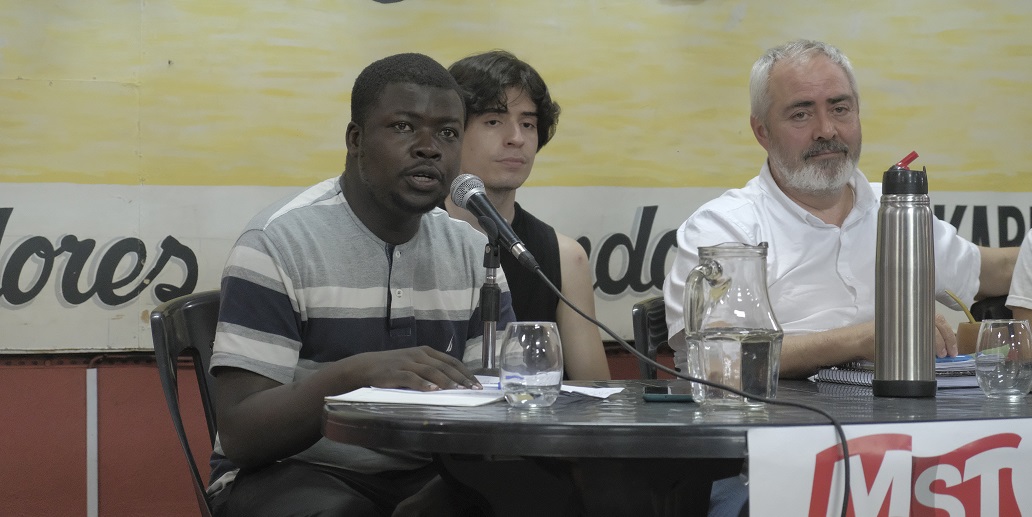A punto de partir hacia Nairobi, luego de 3 semanas intensas de actividad en Argentina, entrevistamos a Ezra para que nos cuente sobre la situación política de Kenia, su organización y sus impresiones sobre la visita organizada por la LIS para profundizar el conocimiento e intercambio entre los partidos que la componen.
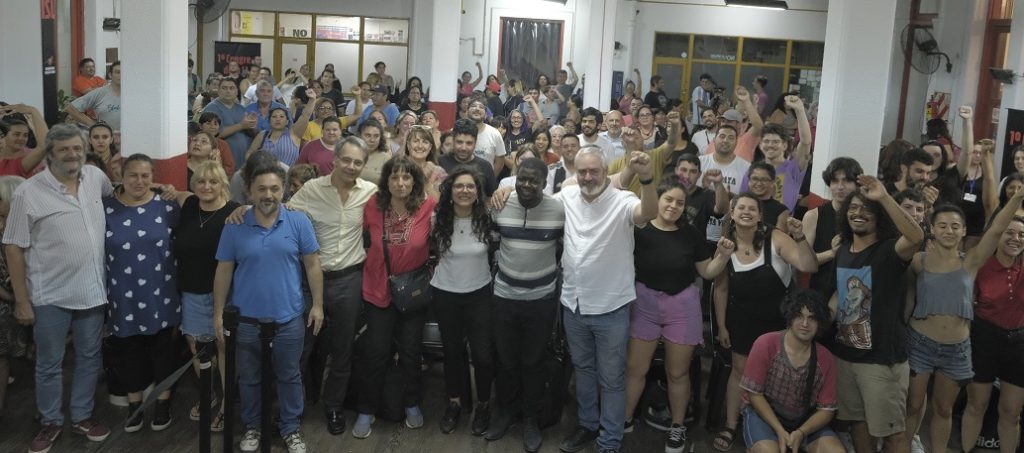
1. ¿Cuál es la situación política en Kenia? ¿Qué procesos de lucha hay y cómo interviene la Liga Socialista Revolucionaria?
La situación política en Kenia es tan mala como siempre. Tenemos un nuevo gobierno que llegó al poder en agosto. El nuevo presidente, William Ruto era vice del presidente anterior, e hijo del primer presidente, Kenyatta, pero pasó a la oposición. Le ganó a Raila Odinga, que fue apoyado por Kenyatta aunque es el histórico opositor de los Kenyatta. Ruto trae principalmente una continuidad del sistema capitalista y neocolonial, y es tal vez más neoliberal y más religioso. Ha transformado la casa de gobierno en una especie de iglesia, celebrando misas públicas desde allí todos los domingos.
Por supuesto las medidas del FMI están siendo implementadas como siempre, y han introducido nuevas medidas, como legalizar los transgénicos y anular los subsidios al transporte estudiantil. El costo de vida es muy alto y muchos kenianos se esfuerzan por garantizar una comida por día. Encima de esto, en el norte del país está sufriendo la sequía más grave desde la independencia y dos millones de personas corren riesgo de morir de hambre.
La opresión de los trabajadores es muy alta y la desocupación es un problema central, lo que hace muy difícil las luchas porque cualquiera que protesta o se quiere organizar es fácilmente reemplazado. En el campo hay cierto nivel de agricultura y pastoralismo de subsistencia, pero en las ciudades la mayoría vive en asentamientos irregulares y vive «de la mano a la boca», como cada día de las changas que logra hacer ese día.
Los pocos que están sindicalizados tienen direcciones completamente vendidas y no hacen nada por los derechos o salarios de los trabajadores. El sindicato docente solía luchar y hacer algunas huelgas, pero en 2019 fue intervenido por el gobierno, que le impuso una dirección obsecuente. El movimiento estudiantil también estaba más activo, con centros de estudiantes y movilizaciones. Pero ese mismo año una ley eliminó las elecciones de centros de estudiantes, imponiendo un sistema de delegados que le permite a las autoridades poner las conducciones a dedo, entonces el movimiento estudiantil se ha desmovilizado.
Desde la RSL nosotros impulsamos la campaña de la Revolución del Hambre con la que presionamos al gobierno que baje los precios de los alimentos y necesidades básicas. La campaña viene organizando marchas mensuales, que fueron interrumpidas por las elecciones pero ahora estamos organizando un relanzamiento más fuerte, porque las necesidades son cada vez mayores.
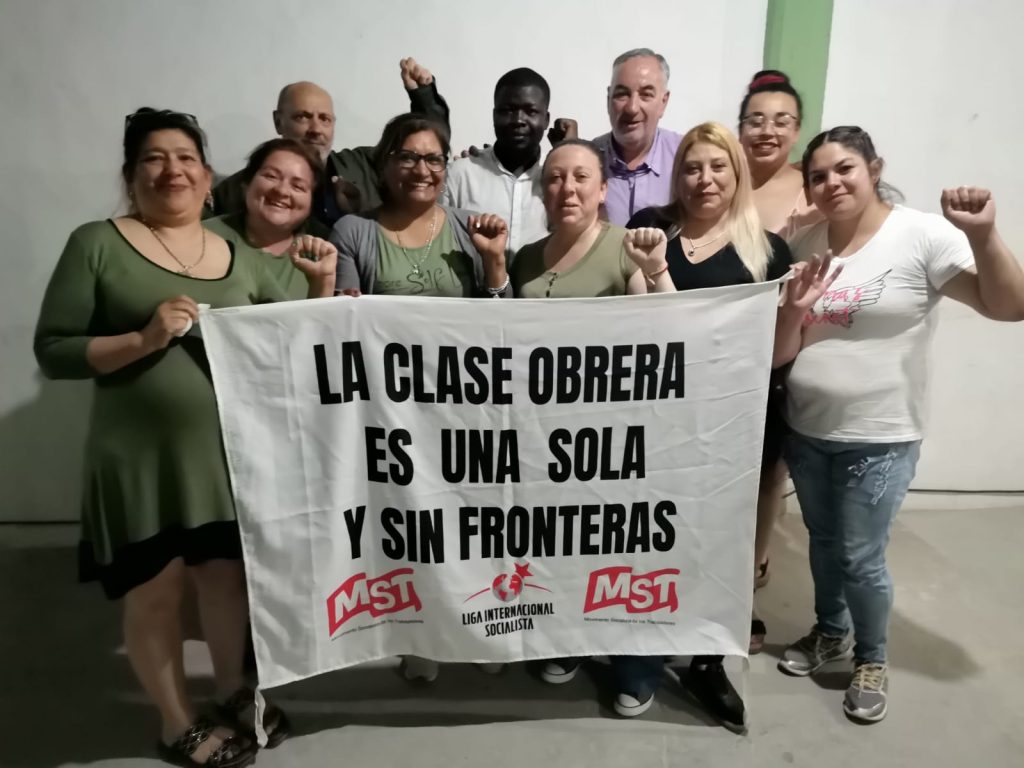
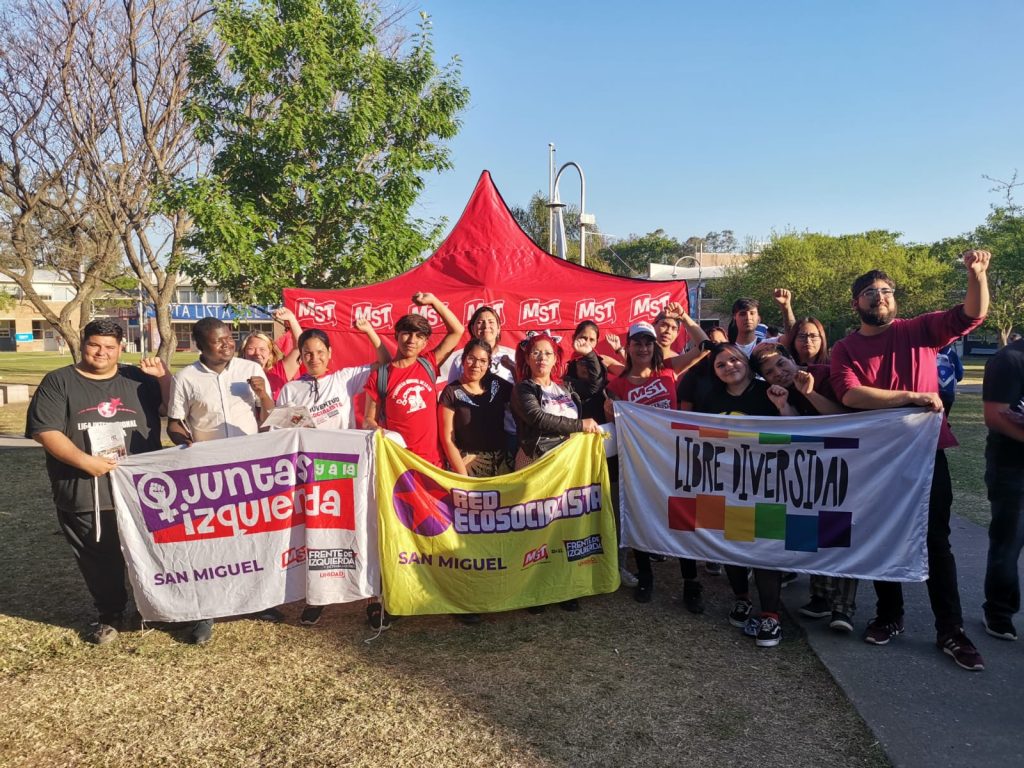
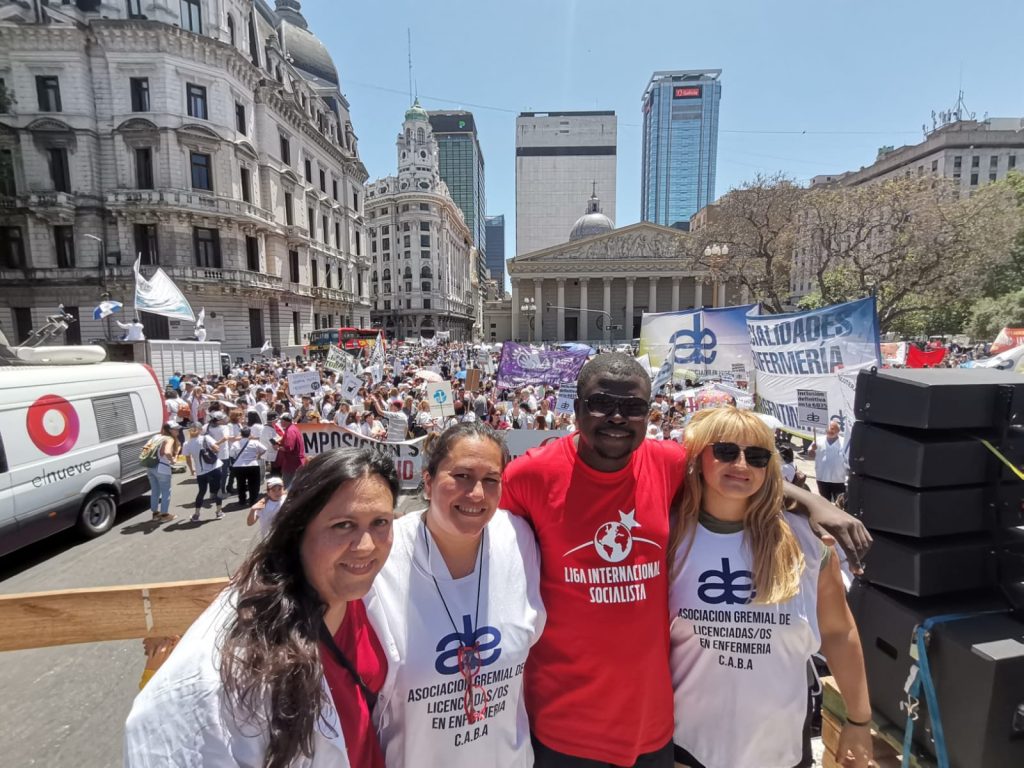
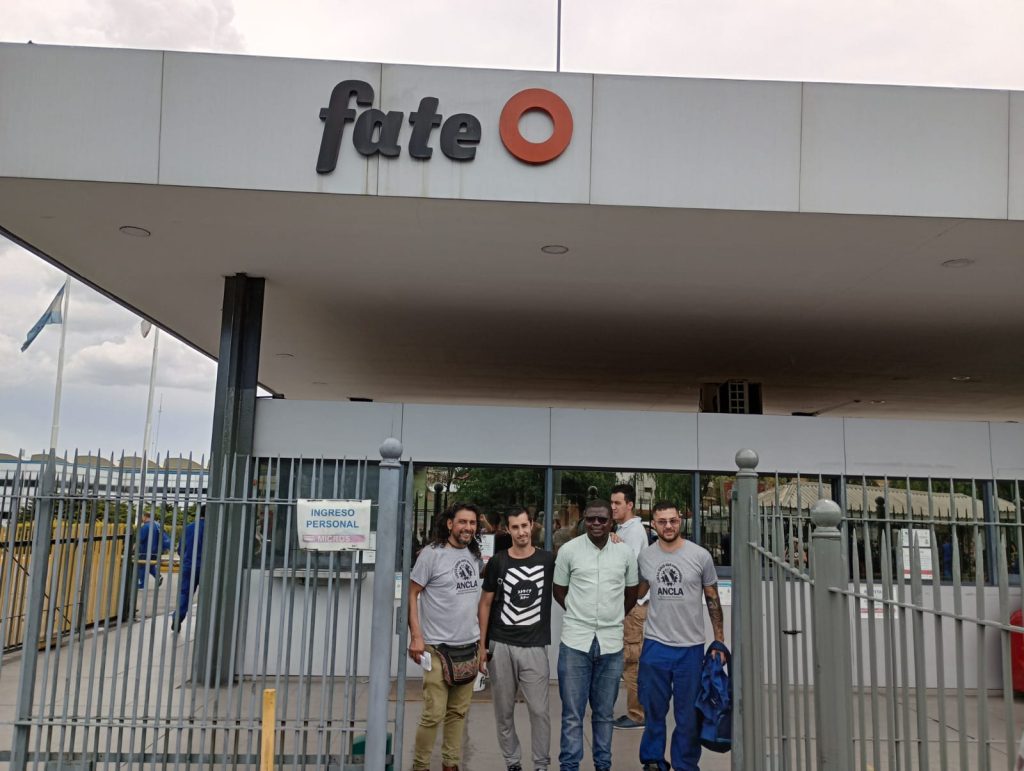
2. ¿Cómo surgió la RSL? ¿Cómo están organizados y qué actividades llevan adelante?
La Liga Socialista Revolucionaria fue fundada en 2018 por un grupo de ex estudiantes universitarios que acabábamos de romper con el Partido Comunista de Kenia. Tuvimos diferencias ideológicas. Principalmente que defienden a China como alternativa al imperialismo de EEUU y Europa y nosotros vemos que China viene a países como Kenia a hacer lo mismo que hace el FMI, que es otro imperialismo. Y también la política electoral y las alianzas del PCK con partidos capitalistas. Ahora están con el nuevo gobierno, por ejemplo.
Nos organizamos en células, tenemos unos mil miembros organizados. Nuestro mayor trabajo está ligado a los Centros de Justicia Social en los asentamientos irregulares de Nairobi, que agrupan activistas de los barrios. Nuestros militantes en las células dentro de los Centros de Justicia Social brindan educación política, participan en las actividades y construyen el partido desde allí. También tenemos algunas células organizando estudiantes en las principales universidades de Nairobi y otras células organizando trabajadores principalmente en Voi y Kericho.
Tenemos una Liga de Mujeres del partido, que en los Centros de Justicia Social organiza centros de contención para víctimas de violencia de género, y hace trabajo de educación política con las mujeres que organiza ahí. También hacemos trabajo ecológico. En uno de los asentamientos más grandes de Nairobi, Korogocho, es un problema central el basural que le instalaron al lado, que contamina el agua y el aire. Hay muchas enfermedades respiratorias, niños con cáncer de pulmón; un estudio reciente midió que la expectativa de vida ahí puede ser tan baja como 40 años. Allí organizamos la plantación de bambú, que ayuda a filtrar las toxinas del agua, y organizamos a los vecinos para reclamarle al gobierno el traslado del basural.
Estamos comprometidos con la estrategia de la revolución socialista, luchamos por un sistema en el que los trabajadores controlen los medios de producción, con salud, educación y vivienda garantizada para todos, con igualdad de género, sin patriarcado.
3. ¿Qué relaciones tienen con organizaciones revolucionarias en el resto de África?
Somos una organización panafricanista. En el espíritu de ser un movimiento socialista panafricano y del internacionalismo, queremos construir un frente socialista de África. Entonces hemos tendido lazos con algunas organizaciones en África que vemos progresivas, por ejemplo, el Foro Socialista de Tanzania, el Partido Obrero Socialista Revolucionario de Sudáfrica, la Vanguardia Socialista Revolucionaria de Nigeria, el Movimiento Sin Tierra de Namibia, el Congreso Panafricano de Sudan, la Juventud Sunkara de Burkina Faso, compañeros individuales en Senegal, Zimbabwe y Mauricio que quieren construir movimientos allí. Tenemos el objetivo de extender la LIS a más países con los compañeros y grupos que podamos avanzar e incorporar, y de construir un movimiento panafricanista socialista más amplio en el continente.
4. ¿Qué es el Panafricanismo? ¿Cuáles son sus corrientes y cuál es la perspectiva de la RSL?
Hay tres corrientes en el panafricanismo. Hay una corriente capitalista, que buscan una federación africana, como Estados Unidos o la Unión Europea pero de África. Después está el movimiento Negros Primero que se basan en las enseñanzas de Marcus Garvey. Parten de una postura anticolonial y antiimperialista, pero plantean la unidad en base a la raza, y no en base a la clase. Y luego tenemos una corriente panafricanista socialista, que busca la unidad de los trabajadores en África. Nosotros somos parte de ésta última. Luchamos por un África socialista unida, con un Estado sin fronteras, con un idioma y un ejército.
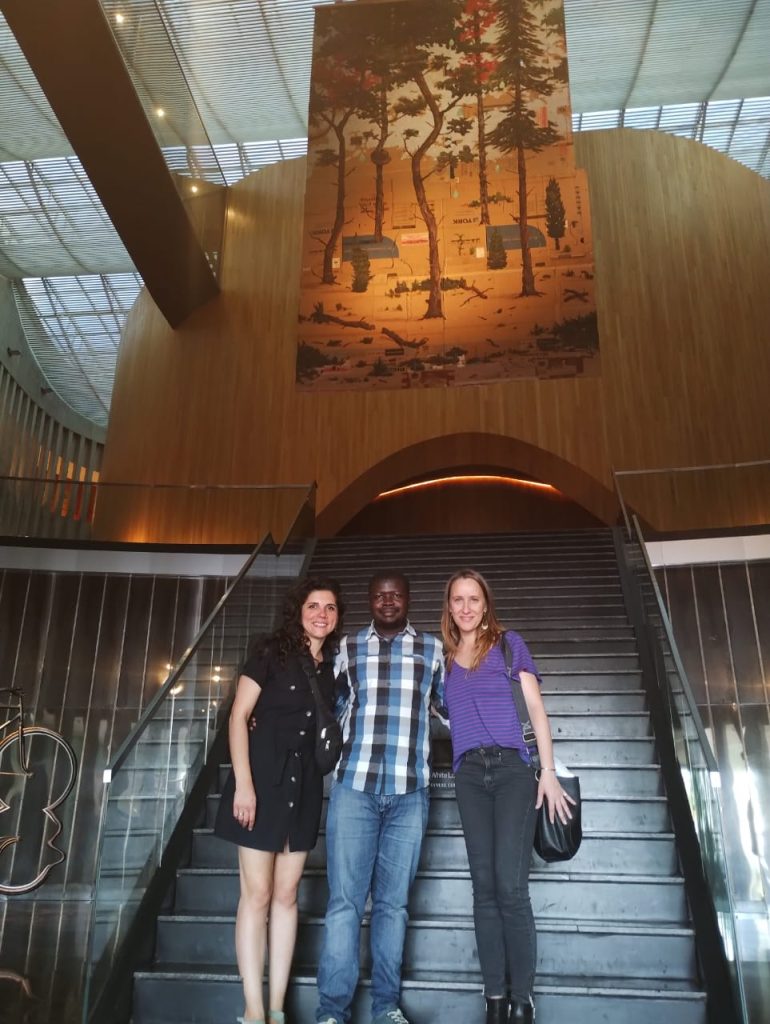
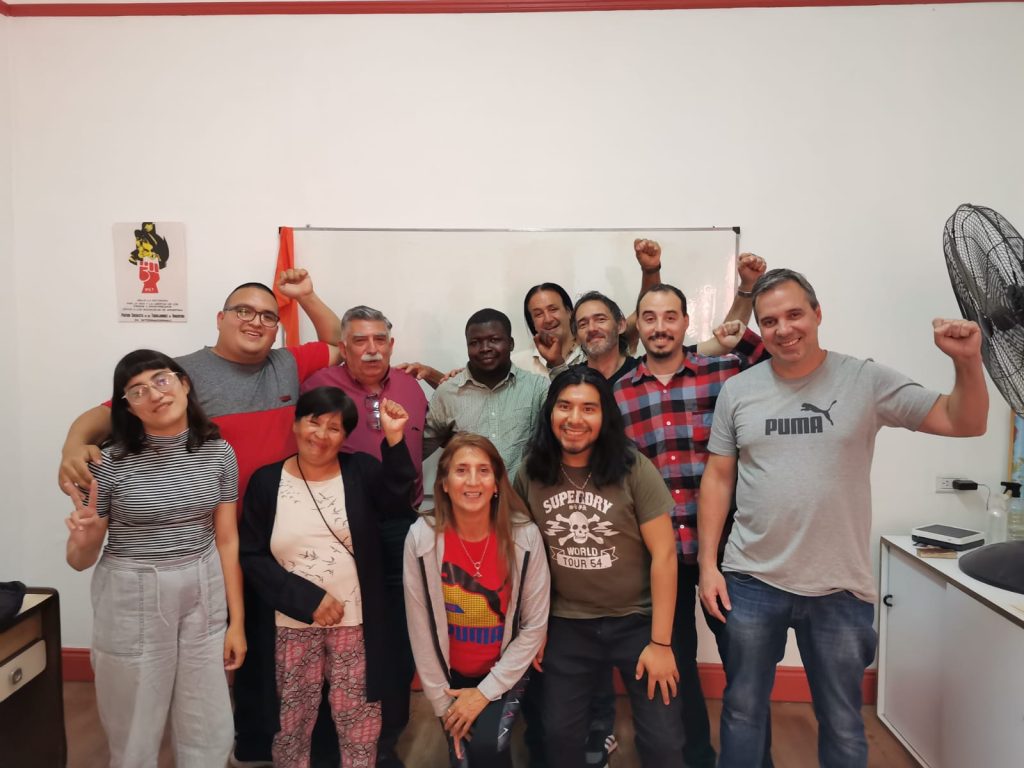
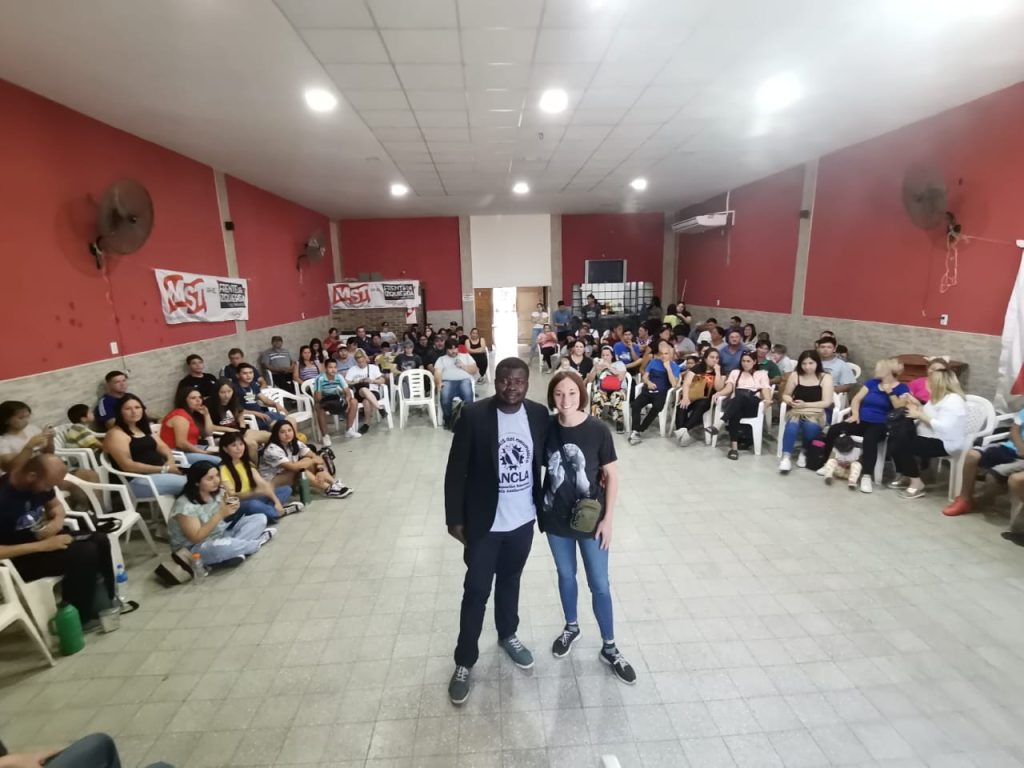
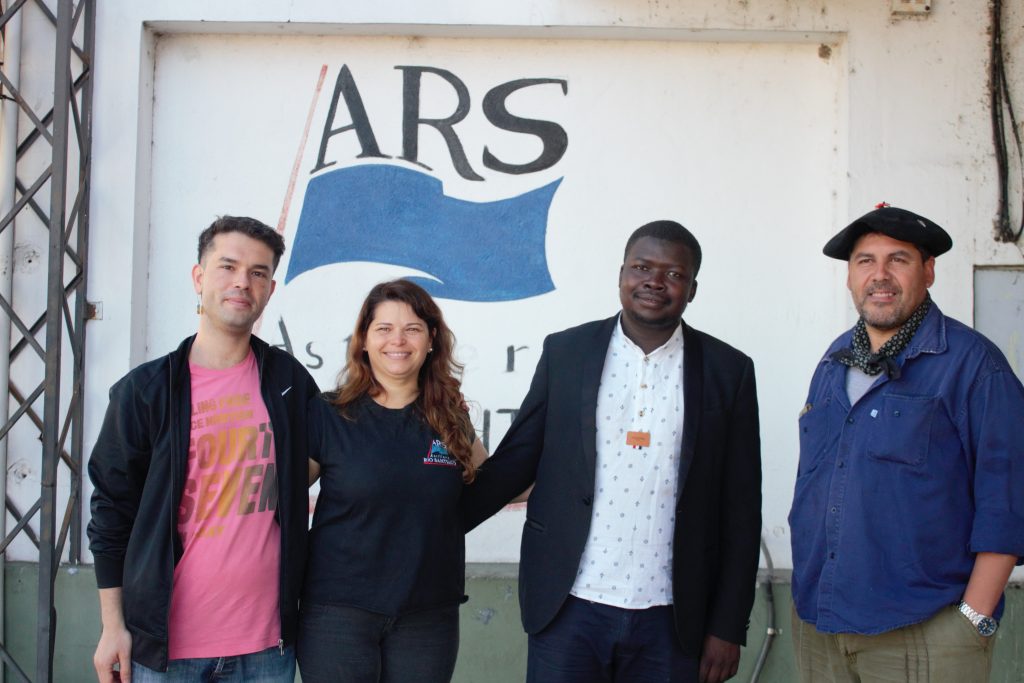
5. ¿Cómo conocieron y confluyeron con la Liga Internacional Socialista? ¿Qué valor le dan al internacionalismo?
Siendo una organización internacionalista, resolvimos salir a buscar y tender lazos con organizaciones que compartan nuestras ideas internacionalistas. Entonces le escribimos a la LIS por email, y la respuesta fue muy positiva. Cuando nos reunimos para conocer nuestras ideologías, encontramos que teníamos mucho en común. En primer lugar, la estrategia de unir a la clase obrera, abolir el capitalismo y construir el Socialismo en todo el mundo. Por supuesto, lo principal es que coincidimos en la necesidad de organizar un movimiento socialista revolucionario mundial de los trabajadores.
El trabajo que venimos haciendo y la relación que venimos construyendo con la LIS vienen muy bien. El viaje a Argentina fortaleció nuestro conocimiento mutuo, y esperamos aportar con la construcción de la internacional en África para avanzar la revolución permanente.
6. ¿Cuál es tu balance de tu visita a Argentina?
Me impresionó mucho mi visita a Argentina. Aprendí muchas cosas. Es impresionante ver el nivel de lucha de los trabajadores argentinos, de dónde vienen y las libertades que tienen hoy que ganaron con las luchas. Y el MST encarna un verdadero movimiento de trabajadores. Encontré una militancia de cuadros muy dedicados en todos los sectores, militantes que le dedican su vida a la construcción de un mundo socialista. Me impresionó particularmente el financiamiento del partido, las campañas financieras que hacen, la dedicación de todos los militantes en contribuir al partido religiosamente. Me encantó la manera que organiza el partido el MST y me llevo varias ideas para discutir cómo fortalecer nuestra organización.
Cuando llegué tenía la expectativa de aprender cosas nuevas sobre cómo organizar en lo sindical, en lo estudiantil, y se cumplió ampliamente. Puede participar de algunas movilizaciones sindicales, de las enfermeras y residentes médicos, la lucha de los trabajadores de la cultura. Conocí militantes estudiantiles de varios lugares, de Quilmes, de la Universidad de General Sarmiento, de la Universidad de Lanús, de las universidades de La Plata, Córdoba, Rosario y Santa Fé.
Me impactó el trabajo y nivel de organización del movimiento de desocupados Teresa Vive. El movimiento de desocupados en Argentina está muy organizado, se movilizan con mucha gente, cortado calles, y se nota que sirve, porque logran subsidios y comida del gobierno para gente que no tiene trabajo. Conocí varios de sus comedores, que allá no tenemos pero veo que podemos aspirar a luchar por tener algo de eso. Participé de varias de sus reuniones y me impresionó el trabajo que conocí en Manzanares, donde los burgueses han desviado un río y rellenado los humedales para construir un barrio privado. Entonces los compañeros ahí tienen la lucha social y la lucha ecológica que dan al mismo tiempo, que es muy parecido en algunos aspectos a la situación que tenemos en Kenia y al trabajo político que hacemos allá.
También participé de los actos que hizo el partido en Buenos Aires, Córdoba y Rosario. Especialmente el lanzamiento de la candidatura de Cele fue impresionante, como una manera nueva de hacer las cosas con un impacto mayor. Me gustó la militancia de los compañeros para publicitar los actos, en Córdoba estuvimos repartiendo volantes a los trabajadores, los compañeros pegaron afiches por toda la ciudad, y la concurrencia de los actos fue muy numerosa, y el mensaje fue muy claro sobre lo que plantea el partido y lo que propone para las elecciones. Vi que se reclutaron algunos compañeros nuevos de esa actividad por lo que creo que salieron muy bien.
Por encima de todo, pude participar de muchas reuniones del partido y ver cómo funciona el partido en todos los niveles. Puedo decir que mis expectativas en el viaje se cumplieron y superaron.

